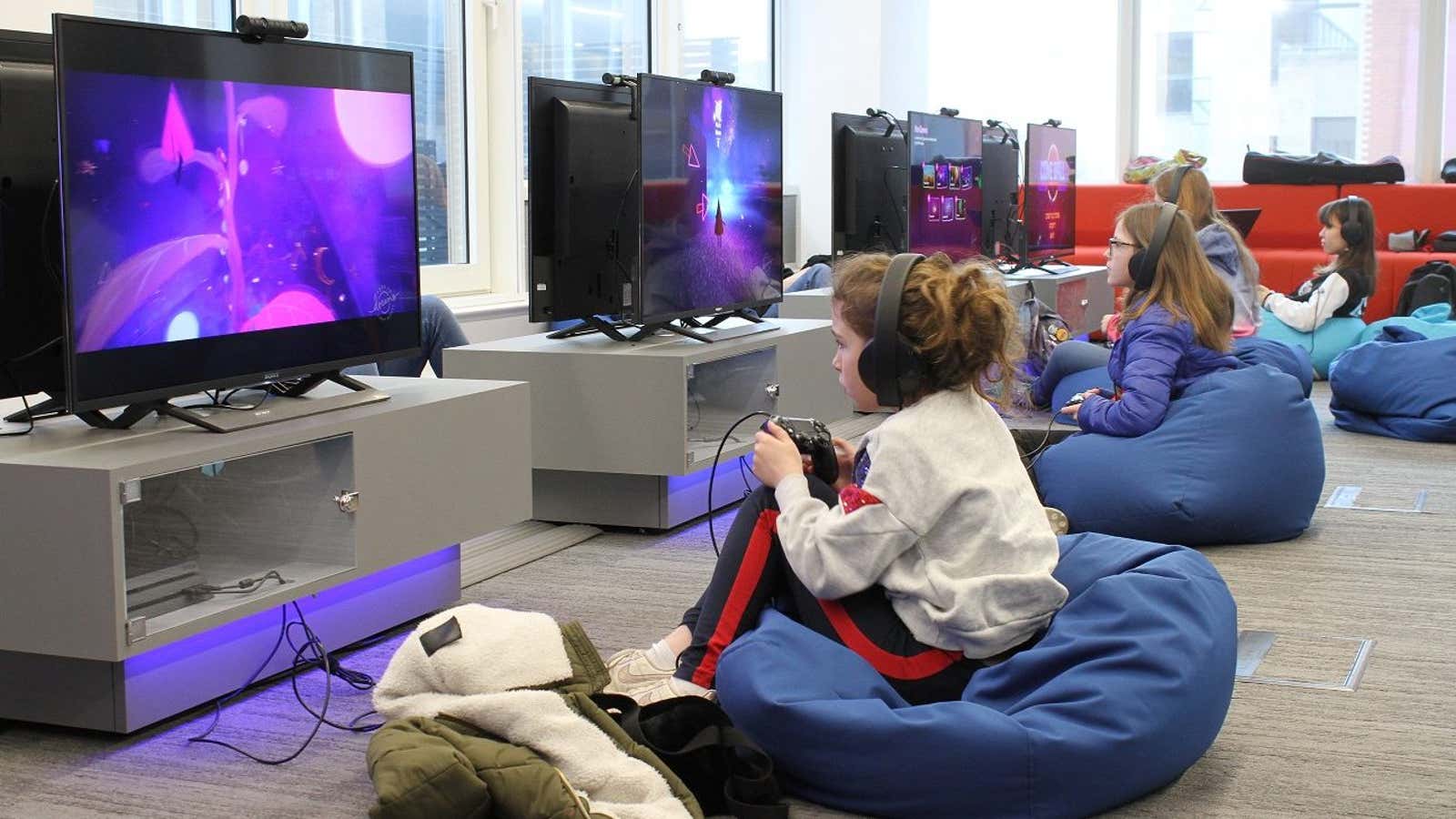Some kids spend their summers swimming and building campfires. This year thousands will head to university and high school campuses to program robots, write software, and design video games. Artificial intelligence—the increasingly ubiquitous technology routing delivery trucks, sifting through job applicants’ resumes, and making small business lending decisions—is now a summer camp experience for ages five to 18.
At least 447 AI summer camps opened across 48 states in the US this year, according to an August report from Georgetown University’s Center for Security and Emerging Technology. Because US schools typically don’t cover the subject, these camps may offer one of the only chances for middle and high-school students to study AI, the report notes. Depending on their ages, campers may study programming languages, practice coding through video games like Minecraft and Roblox, or learn basic computer science concepts using Legos.
The camps could give kids a leg up in applying to a growing number of university computer science programs or AI jobs later in life. The report argues that “this early exposure to AI applications, concepts, and uses will help cultivate a domestic pool of AI talent, in addition to producing more informed users and consumers of AI.”
The camps, however, are distributed unevenly across the country (a few are virtual). Two states, North Dakota and Mississippi, don’t have a single AI summer camp, while Alaska (6 camps), Vermont (4), Colorado (26), Utah (11), South Dakota (3), and Massachusetts (21) offer the most camps per capita. About a third of all camps are run by a university, giving kids in college towns an advantage.
Price is another potential barrier. While 10% of the summer camps are free, costs can range as high as the $6,010 entry fee for a three-week program at Columbia University. The majority of camps are run by for-profit companies—mainly iD Tech, a Silicon Valley-based STEM education company that owns 148 AI summer camps across the country. The report found that about half of all AI camps cost more than $750.
You can find a list of camps here and here.
